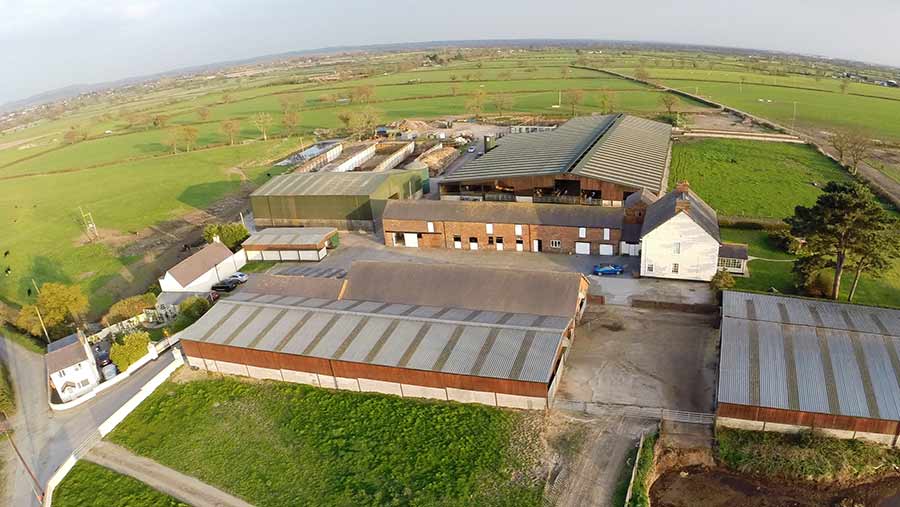Pioneering AD co-op progresses despite support cuts

Dairy farmer Richard Tomlinson believes AD is the next step in sustainable farming.
More than two years ago he started looking at building a 240kW AD plant to process slurry from Lower Park Farm’s 650-head of cattle.
He and his family have invested £107,000 in electrical infrastructure and groundworks for the £1.3m project and are well on the way to raising the remaining funds through a unique co-operative share scheme.
While co-op funded solar and wind schemes already exist, it is a first for AD and he acknowledges raising funds this way has taken longer than expected. But he is confident the plant will be operational before Feed-in Tariffs pre-accreditation expires.
Share offer structure
To raise the £1.25m required, Lower Park Farm Co-operative is offering 1,250,000 withdrawable shares valued at £1 each.
- Shares issued on a “one member one vote” basis, giving equal voting rights
- Return on investment based on a fixed 8% interest rate over the repayment period (approximately 10 years depending on performance)
- Interest accumulates as soon as the investment money has been banked
- Shares will be withdrawn over the repayment period
- Regular share withdrawal and interest payments start once the AD plant is generating income in year two
- Payments amended quarterly
- Once all shares are withdrawn and interest paid, plant ownership transfers to the co-op’s founding members (i.e. the farmers)
- Minimum investment £1,000, up to £100,000 max
- If the project does not proceed, all investments will be repaid in full
- Budgets based on 75% digester efficiency – benefit from higher performance split 50:50 between the farmer and co-op.
It was the less-than-supportive stance of banks towards AD that made Mr Tomlinson look to alternative finance options for the project.
“AD is the elephant in the room for banks and none seem to have policies towards it. Most wanted 110-120% security on the cost of the plant and were only willing to take 50% of the income from it into consideration for paying back the loan, which didn’t make it feasible for us.
“We’d seen the growth of online crowd-funding so thought this would be a good way of raising the finance.”
Proving credentials
AD manufacturer Fre-energy, which Mr Tomlinson co-founded in 2007, conducted a feasibility study for the site with administration arm Cows-Hub.
It is modelled on the firm’s first CHP plant, built in 2010 at nearby Lodge Farm, which is also owned by the Tomlinson family. It uses Fre-energy’s patented digester design, which continuously processes high levels of grit, sand and soil found in animal slurry without needing additional energy crops.
About 25-30t of slurry and 6t of chicken litter a day are used to generate 160kW of electricity and 200kW heat.
While obtaining planning permission for the Lodge Farm site was a “huge hurdle”, Mr Tomlinson says the process was much more straightforward at Lower Park Farm, with permission agreed in 28 days.
Once planning permission and a grid offer were confirmed, it was registered for FiT and Renewable Heat Incentive pre-accreditation to lock into a generation tariff of 12.46p/kWh, export price of 4.77p/kWh and RHI of 7.5p/kWh. The share offer was then finalised and publicly launched in June 2015 (see panel).
A website went live and a series of open events and meetings have been held to attract prospective investors.
“We’ve had a good conversion rate from visitors to investors and have raised more than 50%. Many investors are aged nearer 60 than 50, wanting more from their savings than the low bank rates.
“We’re confident of getting the remaining funds soon and with building work well under way, we should get the plant up quickly.”
The share offer initially set a lower minimum investment of £500 for people living within five miles of the site, however this ended due to the disproportionate administrative burden, he notes.
“We’re still keen for locals to invest, but the minimum for anyone is £1,000. Our average investment is around £10,000.”
Integrating with the farm
The co-operative will own the digester, pay for operation and rent the site from the farm for a nominal sum (£1,000/year). Revenue from all electricity sales and support payments goes to the co-op, while the farm business is responsible for daily feedstock loading, digestate storage and spreading. In return the farm benefits from electricity at wholesale prices (roughly half the standard unit price), free heat and digestate fertiliser.
“We’ll use about 20% of electricity on the farm and all the heat, mostly for parlour washing, but also for heating the farmhouse and three cottages. We also plan to build a dryer for woodchip,” says Mr Tomlinson.
Fre-energy will commission the AD plant and provide a 10-year maintenance contract.
